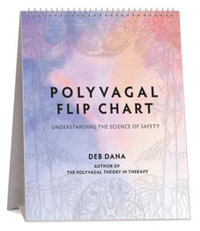Phanes (fa-nays) means "manifester" or "revealer", and is related to the Greek words "light" and "to shine forth".
Phanes Press was founded in 1985 to publish quality books on the spiritual, philosophical, and cosmological traditions of the Western world. Since that time, we have published 45 books, including five volumes of Alexandria, a book-length journal of cosmology, philosophy, myth, and culture.
The year 2000 marks our fifteen-year anniversary, and we are working to bring out more interdisciplinary works, including books on creativity, psychology, literature, and the intersections between science, spirituality, and culture.
Albert Einstein, Ludwig von Beethoven, Leonardo da Vinci, Virginia Woolf, Nikola Tesla... Everyone agrees they were creative geniuses. But what made them the way? How were their minds different from ours?
This "lively, eclectic compendium" (Kirkus Reviews) draws the reader into the inner workings of some of the greatest minds of all time, observing startling similarities between scientists and artists, showing how individuals exploit doubt and uncertainty, and noting the mental strategies and tactics they employ when they work.
It is Brigg's conviction that geniuses are not necessarily smarter or more talented than other people, but they are driven to embrace nuances and contradictory feelings which others suppress. This sensitivity to nuance is a central element of genius, and of the creative process. Identifying the root of creativity in this innate process also holds promise for us in our own lives and work: "We may all have in us intuitions and perceptions that could take us to the deepest place that genius inhabits".
Industry Reviews
From Briggs, who teaches at N.Y.C.'s New School, a dissection of creativity and genius that relies on alchemical metaphors as it reviews past and contemporary theories of creativity - here, touching upon the psychological and neuroscience literature and on case studies of prodigies and idiot savants; and, perhaps most important of all, referring often to the words of acknowledged creators. The direct quotes and biographical material make this book a useful reference: from Einstein to Virginia Woolf, Newton to Georgia O'Keeffe, plus Flaubert, Picasso, Conrad, Hemingway, Faulkner and a smattering of science Nobel laureates. And these references serve to illustrate certain commonalities that Briggs and other delvers in the field have noted: certain central themes (e.g., for Einstein, the notion of a continuum; for Woolf, the waves) often acknowledged by the creator in terms of childhood memories or reconstructions. Then there are habits of mind: the ability to tolerate polarities, ambivalence, even what Briggs calls "omnivalence": a sense that beyond the tensions of uncertainty there is something more, something that makes an aesthetic act "an imminence of a revelation which is never fulfilled," to quote Borges. Don't expect final answers; Briggs offers no succinct definitions of creativity or genius. Do expect to bear about "themata." "nuances," "construals," and other new and old words coined to capture creative qualities of mind. Also, motivation, focus, restlessness, idleness, transcendent self-universe feelings, and, importantly, the distinction between talent and creativity and the significances of the cultural context. Rest assured, too, that Briggs pays no heed to IQ or special tests designed to measure creativity. A lively, eclectic compendium, then, valuable for reflecting current thinking by the analyzers as well as the objects of their analyses. (Kirkus Reviews)
























